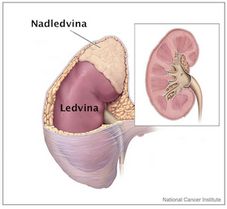Endocrine Diseases
We focus on endocrinology

Thyroid disorders make the largest part of the endocrinology examinations.
Most of the thyroid disorders often present with decreased or elevated thyroid function. Decreased thyroid function can causes fatigue, sleepiness, weight gain, constipation. On the other hand increased thyroid function causes palpitations, weight loss, nervosity, sleep disturbances or diarrhea.
Enlarged thyroid gland is called goitre. Most frequently is caused by autoimmune thyroiditis or thyroid nodules.
Thyroid examination usually consists of careful history, blood tests and often thyroid sonography with a possibility of thyroid biopsy where a thyroid malignancy is suspected.

Parathyroid glands are usually located behind the thyroid gland. They produce parathormone which regulates calcium homeostasis. In case of pathologically increased parathyroid function, calcium is released from bones inappropriately and leads to osteoporosis with elevated risk of vertebral, femoral and other bone fractures. Elevated calcium urine excretion then leads to kidney stones. Hypercalcemia can also cause mood changes, depression, constipation, anorexia, dehydration.

Adrenal glands produce a few hormones.
Epinephrine and norepinephrine regulate blood pressure and cardiovascular system. Their elevation causes arterial hypertension, increase perspiration, nervosity, weight loss, consipation and other less pronounced symptoms.
Cortisol is a hormone responsible for adaptation to stress, pain. Cortisol insuficiency (e.g.) Addisons dissease) leads to fatigue, weakness, syncope, low blood pressure, low sodium levels, low glucose, weight loss. Conversely elevated cortisol levels (Cushings syndrome) increase abdominal fat, obesity, muscle weakness, purple striae, plethora, decreased libido, round face, hirsutism, increased blood vessel fragility.
Elevated aldosterone causes arterial hypertension and sometimes low blood potasium levels.
In small amount androgens are also produced in adrenals.

Pituitary disorders lead to local symptoms such as headaches, thirst, increased urination, water imbalance, visual field impairment due to the pituitary location near optic chiasm. Due to the central role of hormonal regulation, pituitary disorders can also lead to adrenal, thyroid, gonadal, mamary gland dysfunction. Ilnesses that we treat include prolactinomas, acromegaly, Cushings dissease, craniopharyngeomas, hypopituitarism.
Decreased testosterone in man causes decreased libido, sexual functions as well as low muscle strength, mood changes, osteoporosis.
Menstrual disturbances, infertility in women are usually treated by gynecologists, but endocrine disorders such as pituitary impairement, hyperprolactinemia, hypothyroidism can also be the cause.



